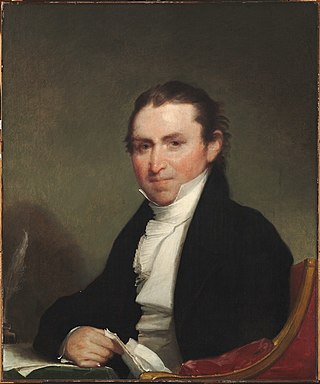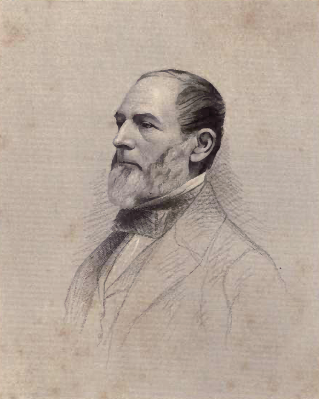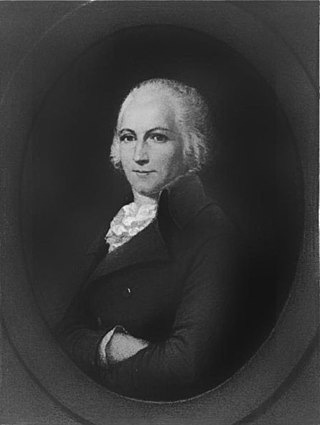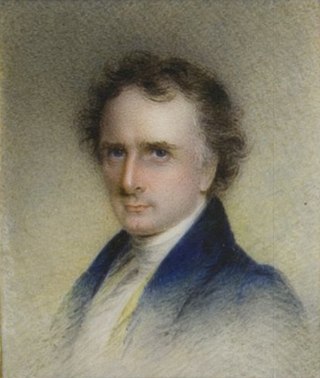Related Research Articles

John Fiske was an American philosopher and historian. He was heavily influenced by Herbert Spencer and applied Spencer's concepts of evolution to his own writings on linguistics, philosophy, religion, and history.

Arthur Young was an English agriculturist. Not himself successful as a farmer, he built on connections and activities as a publicist a substantial reputation as an expert on agricultural improvement. After the French Revolution of 1789, his views on its politics carried weight as an informed observer, and he became an important opponent of British reformers. Young is considered a major English writer on agriculture, although he is best known as a social and political observer. Also read widely were his Tour in Ireland (1780) and Travels in France (1792).

Charles John Biddle was an American soldier, lawyer, congressman, and newspaper editor.

Francis Dana was an American Founding Father, lawyer, jurist, and statesman from Massachusetts. He served as a delegate to the Continental Congress in 1777–1778 and 1784. A signer of the Articles of Confederation, he was secretary to the diplomatic mission that negotiated the end of the American Revolution, and was appointed Minister to Russia. He later served as a member of the Supreme Judicial Court of Massachusetts and served as the chief justice for 15 years.

William Alexander Duer was an American lawyer, jurist, and educator from New York City who served as the President of Columbia University from 1829 to 1842. He was also a slaveholder, owning numerous enslaved African Americans.

Robert Fleming Gourlay was a Scottish-Canadian writer, political reform activist, and agriculturalist.

Eleutheros Cooke was a lawyer and U.S. representative from Ohio (1831–1833).

John Lowell Jr. was an American lawyer and influential member of the Federalist Party in the early days of the United States of America.

Samuel Gardner Drake was an American antiquarian, author and historian.
Thomas Lewis O'Beirne, was an Anglican bishop, Bishop of Ossory from 1795 to 1798 when he was translated to Meath.
Richard Lamb Allen was an American writer on agriculture.

William Williams Mather was an American geologist.

John Read was a lawyer and banker in the early history of the United States.
Joseph Dana (1742–1827) was an American clergyman.
Peter M. Garner (1809–1868) was an American abolitionist.

James Pitts (1712–1776) was a Massachusetts merchant and an early American Patriot.
William Spry was a jurist and governor of Barbados.
James Robinson Boise was an American classicist. He was the author of several Greek text books.

James Rush (1786–1869) was an American physician and writer.

Christopher Rush (1777–1873) was a bishop of the African Methodist Episcopal Zion Church.
References
- Attribution
- This article incorporates text from a publication now in the public domain : Wilson, J. G.; Fiske, J., eds. (1900). . Appletons' Cyclopædia of American Biography . New York: D. Appleton.
 This article incorporates text from a publication now in the public domain : Hewins, William Albert Samuel (1895). "Parkinson, Richard (1748-1815)". In Lee, Sidney (ed.). Dictionary of National Biography . Vol. 43. London: Smith, Elder & Co. p. 315.
This article incorporates text from a publication now in the public domain : Hewins, William Albert Samuel (1895). "Parkinson, Richard (1748-1815)". In Lee, Sidney (ed.). Dictionary of National Biography . Vol. 43. London: Smith, Elder & Co. p. 315.